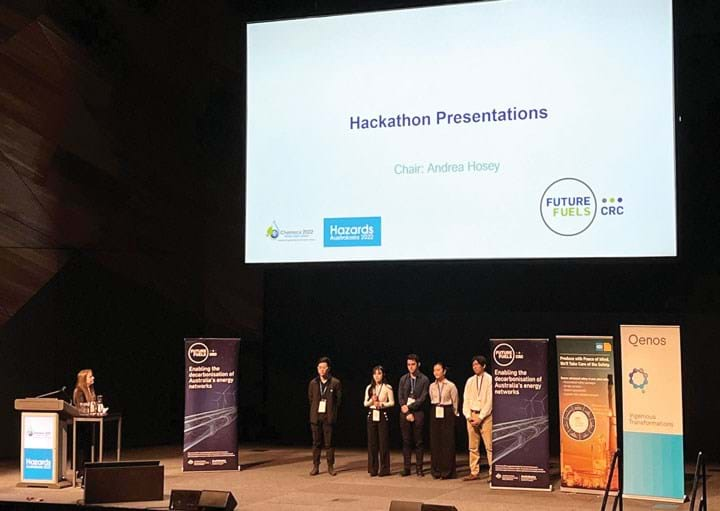Future Shapers student team wins Chemeca Hackathon
University of Melbourne team pitched plan to make fuel from Australian steelmaker
STUDENTS from the University of Melbourne have won the inaugural hackathon competition at the annual Chemeca conference in Australia. Teams were required to pitch innovative energy transition solutions, and the Future Shapers team won for their proposal to produce synthetic fuel from steel manufacturing emissions produced in the neighbouring state of New South Wales.
The Future Shapers team are Jacqueline Zhu, Gianna Sim, Huy Pham, Yuji Chichibu, and Michael Fasulakis. The hackathon challenged student teams to develop a proposal to help manage the transition of the current carbon intensive fuel mix to net zero carbon emission fuels, and pitch the project to a fictional venture capital company made up of a panel of real industry experts.

Round one, before the twist
In the first round the teams were asked to produce a conceptual design that covered techno-economic considerations including targeting a specific geographic location; appropriately sizing the solution; estimating the emissions reduction; leveraging existing assets; estimating costs while considering funding opportunities including government incentives; and considering safety, process and personnel.
“Our proposed solution was aimed at decarbonising the heavy-haulage transport and machinery industries,” said Zhu. “We proposed to develop a new plant in Port Kembla, which would convert green hydrogen produced through electrolysis and waste CO2 captured from a nearby steel-making plant into synthetic diesel. Our plant would be co-located with BlueScope’s Port Kembla steelworks and produce up to 21m L of diesel per year in phase one, increasing to 440m L per year in phase two.
“We chose a power-to-liquid synthetic fuels solution because we wanted to pitch a heavy-industry decarbonisation project related to green hydrogen technology, while being realistic about current market constraints. For example, the current hydrogen market is not fully mature, and using pure hydrogen as a fuel source in heavy machinery would require significant investment in new infrastructure. On the other hand, synthetic fuel production relies on mature processes, like the Fischer-Tropsch process and carbon capture, and can be used directly within existing infrastructure. The proposed solution will allow us to not only be practical but also innovative with combined usage of green hydrogen and carbon capture.”
Recent Editions
Catch up on the latest news, views and jobs from The Chemical Engineer. Below are the four latest issues. View a wider selection of the archive from within the Magazine section of this site.




